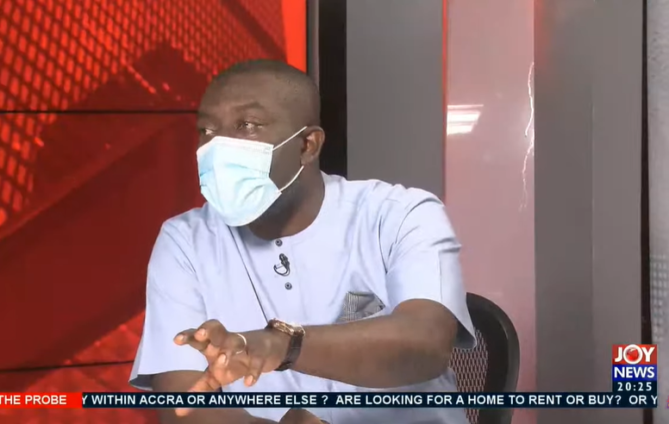Information Minister, Kojo Oppong Nkrumah says that the Broadcasting Bill does not seek to dictate to the media what they can and cannot publish.
He said the freedom of the media gives everybody in the space the right to publish that which they ought to publish except in some specific instances.
The Ofoase Ayeribi MP told Emefa Apawu on Joy News' The Probe Sunday, that the Broadcasting Bill will properly flesh out exceptions so that people in the media space are guided not to go into those areas.
“Nobody can dictate to the media what to publish, the media sector is one of the most vibrant and academic sectors.”
“It (Broadcasting Law) does not mean that like what happened with the LI, it is going to be a regime where before you even put out your content, you have to, as it were, get prior approval or something.”
Mr Oppong Nkrumah explained that although laws exist today for the suspension or withdrawal of authorisation of a media house, if they publish or broadcast content that is found to be egregious against the terms and conditions of that authorisation, there is a gap to determine who makes the determination.
He said that the consultative dialogue helped establish a joint stakeholder committee that will help make that determination and proceed to make recommendations on the actions needed to be taken against the house.
The committee will be established in accordance with section 10 of the NMC Act 1993 (ACT 449), he said.
This committee will consist of National Media Commission, National Communications Authority, National Security Secretariat, Bank of Ghana, Ghana Independent Broadcasters Association, Ghana Journalists Association and the Office of the Attorney-General.
“Traditionally the NCA is the one that made that determination, and they have had an occasion to do it once, they got it right in that particular instance. In the case of Radio Tongu in the Volta Region which was propagating or advancing the course of secessionist and they took a decision to withdraw that frequency authorisation."
"But face a situation where the NCA chooses to do something funny, then they could stretch their arm a bit too far and begin to interpret the content as against national security, against public morality etc. So the very intelligent answer they have found is now to have this committee under section 10 of NMC’s rules.”
He added that members of the committee will be required to examine the content that is being complained about and make recommendations.
“When they come to the view that indeed this is against the interest of x or y or z, then they may proceed to make recommendations, those may be warnings naming and shaming. They may be to draw the attention of the NCA that ‘we are satisfied that this particular content goes against these ethical provisions, and we think that to the extent that is person, after 30 days of this warning, is still continuing or persisting action must be taken.”
He said that with this it is not left to only one body to make the determination or the recommendations.
“So it is within that framework that you can be helpful that not the minister, not even the NCA but the NMC and all these stakeholder groups can look at issues dispassionately and act.”
“So they can balance the protection of our freedoms with media gatekeeping which is something that is done all over the world.”
Latest Stories
-
Wontumi’s arrest: NPP supporters block police riot vehicle with truck, car tyres at EOCO
4 minutes -
UMB appoints Mrs. Daphne Oppong as Head of Human Capital
18 minutes -
A Legacy of Leadership: An impactful public service journey!
22 minutes -
Eni Ghana and its OCTP Partners, Vitol and GNPC, launch Sankofa East 1X Side Track 2 activity
1 hour -
MFWA condemns assault on JoyNews’ Latif Iddrisu
1 hour -
TAF College pursues transformation of jobless youth into entrepreneurs
1 hour -
Sidi Tah of Mauritania elected President of AfDB
2 hours -
The Tah Doctrine: A Presidential Mandate for Africa’s Next Chapter
2 hours -
Minority MPs walk out of Parliament over ‘harsh’ bail conditions for Chairman Wontumi
2 hours -
Minority storms EOCO HQ to demand Wontumi’s release
2 hours -
NRSA threatens court action against Accra assemblies over illegal billboards
2 hours -
Ghana embraces digital technology to transform dental healthcare
2 hours -
Hannah Bissiw, Atiwa West DCE lead operation to arrest 10 illegal miners
2 hours -
Oppong Nkrumah demands these 7 gov’t policy documents for effective oversight
3 hours -
Ghana EXIM Bank and Saudi EXIM Bank collaborate to facilitate trade; sign MoU
3 hours

